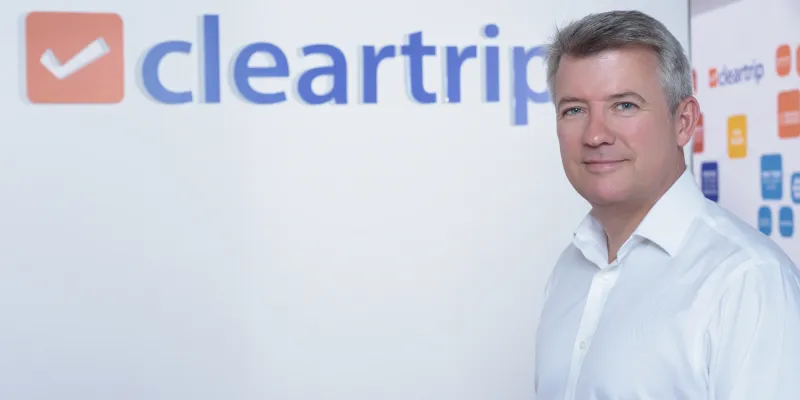Focus not only on growth, but the product – Stuart Crighton, Founder, Cleartrip
Cleartrip Founder Stuart Crighton talks about the company's journey, India's travel segment, and the acquisition of Saudi Arabia’s Flyin.
The online travel aggregator (OTA) space in India has many players, but few leaders. Online travel agency Cleartrip was founded by Hrush Bhatt and Stuart Crighton in 2006 at a time when the Indian internet, banking and payment infrastructure were at the cusp of growth and change.
Growing with the technology ecosystem in the country, Cleartrip expanded to the Middle East and Northern Africa (MENA) region, as it saw business potential there. The company, last month, acquired Saudi Arabia-based Flyin, an online travel aggregating company, expanding its presence in the MENA region. Prior to founding Cleartrip, Stuart was with Abacus Distribution Systems, and was responsible for the organisation’s operations and strategy across India, Pakistan, Bangladesh, Nepal and Sri Lanka.
The rugby-loving British national based out of Delhi speaks to YourStory about Cleartrip’s journey and its acquisition of Flyin. Edited excerpts of the interaction.
YourStory: How have you seen the Indian travel market evolve since you started?
Stuart Crighton: When we started Cleartrip in 2006, India was a growing and evolving market. But having said that, India has also been a competitive market, with either strong players or newer business models emerging. There is also a constant buzz and capital inflow into the Indian travel market, which is causing a dynamic and changing behaviour. Cleartrip, therefore, has always had a laser-eyed focus on not just the growth and the market, but also on the product, and how it had to evolve.
YS: How would you describe the Indian traveller?
SC: There are a vast majority of people who are taking the online route to travel in India, but the OTA segment works very differently. The value of the basket size is much larger here, and so a majority of people end up booking tickets only twice a year. As a player in the segment, you need to keep spending to acquire customers, and the customer acquisition cost is very high.
So early on, we started finding people who go on short trips and travel extensively. This helps in reducing the costs. It means you work on solving for your customers, reducing friction and making online transactions simpler.

YS: Has this helped in product evolution and development and creating a strong differentiator?
SC: Absolutely! The base of customers who travel five-to-six times a year are the ones we need to focus on. And that is what we did. Despite the fact that it is a competitive market, we have been able to offer something different to a large base of customers. It ensures a topline growth for the company. It is this differentiator we are focussed on, and we build content, information, holidays and plans according to the needs and requirements of the customers.
YS: Many have called India a heavy discounting market, especially in the OTA segment. What is your take on this?
SC: Close to 90 percent of the discounting happens in the accommodation space. And in this, a high portion of the discounting happens in the two- and three-star hotels. It is more for the entry-level and affordable travel. But this hurts the market at large, as most of the accommodations are budget ones, and discounting on top of that just burns more cash. We believe in creating value for the customer to stay with us for a longer period of time.
YS: Tell us more on the acquisition of Flyin, and why did you choose them in particular?
SC: When we started expanding in India, we realised that the Middle East market needed to be cracked. It was around 2012 that we ended up setting our base in the UAE. It was from here that we started looking into different parts of the market. In Saudi, we realised the market was homogenous, and had several home-grown brands that were already innovating and growing. In that sense, we felt Flyin had captured the market, had a great product and team. We already have close to 65 percent of the OTA market in the UAE, and we now need to look at others in the region.







